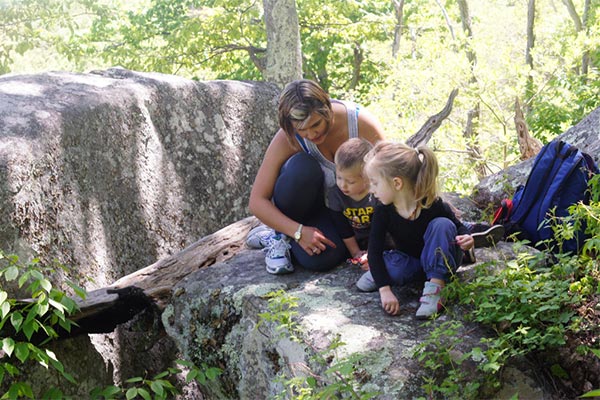
You may have read earlier that for the previous year, we’ve had an au pair in our house from Brazil.
We are a family of two working parents and two toddlers ages 4 and 2. With daycare being exorbitant and with the constant hassles of having to find babysitters for the myriad of reasons that come up, we last year got our first au pair. We were so happy with how it worked out for our family that we decided to get another au pair after our first au pair’s stay in the US was complete and she had to return home to Brazil .
Our new au pair is from South Africa, and she has just been a dream. She works outrageously well with the kids, the kids LOVE her, and she has enriched our whole quality of life to have her in the house. [As a sidenote – if you’re curious how it works to get an au pair, how they come to the USA, etc, etc, read my first post about it here, where I cover the topic in much detail.]
The one part of the experience that I wanted to take up is the aspect of our two cultures and how it relates to the care of our kids. Our au pair is a Pentecostal Christian, and was quite active in her church back at home. Some might think that this would be a cause for conflicts or awkwardness when dealing with the task of the care of the children, but I’ve really found it to be the reverse.
Personally, I’ve found that I get along best with folks that have a religious background, whether or not they’re also of my own religion.
We have spent actually many hours, my wife, my au pair & I, talking about our various religious beliefs, and found that there are countless ways that they actually align – that the way we want the children treated line up extremely well with her own moral background with little, if any, differences between how we approach things. I think it’s fascinating really, and sometimes I feel that we share the same concepts, but just we use different languages to describe them.
Obviously, there are things that differ greatly between our religions – but mainly those are areas where the philosophies simply don’t overlap. There are parts of Scientology like the Cycle of Communication or the Cycle of Action or the Tone Scale which are applied portions of the philosophy, can be used by any religious or non-religious individual, and simply don’t have a counterpart to compare with in a Christian’s faith.
Similarly, Scientology makes no effort to define God or one’s relationship to such. We have the concept of the 8th Dynamic [see video here for description] but that leaves the definition and one’s approach to God or infinity entirely up to the individual.
But as it pertains to parenting, the points that we hold dear, she’s all too willing to help with. Things like allowing children to contribute in the family, allowing them to finish cycles of action, teaching by example, etc – all of which she takes in stride.
I also appreciate the fact that, as a practicing Christian, she does feel a very personal need to act morally – not just because we’ll deport her or something – but because, with her background, acting well in the sight of God is important. So – she doesn’t smoke, drink, party all night, etc. And even if some portions of her moral code may be different from mine, I’ll take someone with morals pretty much any day over someone with a “YOLO dude…” attitude where anything goes.
In 1973, L. Ron Hubbard wrote an essay entitled Religious Influence in Society – one I feel very strongly about, and which I think applies here. I rather encourage you to read the whole essay, but a salient excerpt follows:
The truth of the matter is that at no time is religion more necessary as a civilizing force than in the presence of huge forces in the hands of Man, who may have become very lacking in social abilities emphasized in religion.
“The great religious civilizing forces of the past, Buddhism, Judaism, Christianity, and others, have all emphasized differentiation of good from evil and higher ethical values.
“The lowering of church attendance in the United States coincided with a rise in pornography and general immorality, and an increase in crime which then caused a rise in numbers of police without a subsequent decline in actual moral aberration.
“When religion is not influential in a society or has ceased to be, the state inherits the entire burden of public morality, crime and intolerance. It then must use punishment and police. Yet this is unsuccessful as morality, integrity and self-respect not already inherent in the individual, cannot be enforced with any great success. Only by a spiritual awareness and inculcation of the spiritual value of these attributes can they come about. There must be more reason and more emotional motivation to be moral, etc., than threat of human discipline. – L. Ron Hubbard
So, in short – it is possible, and highly enjoyable, to have someone of a different religious background in our house, and even working with that which is most precious to us – our children. It, to me, is a lesson that essentially every religious group on earth could actually get along if they took the time to understand and respect each other’s religious beliefs – and see where it is they agree, rather than focus on where they don’t.
Based in the Washington, D.C. Metro area, is a Linux system administrator, mountain biker, husband, father of two, and lifelong Scientologist. He’s written hundreds of articles on the subject of Scientology as it relates to parenting and family, as well as various commentary on the Scientology religion.
This post originally appeared on ScientologyParent.com.

